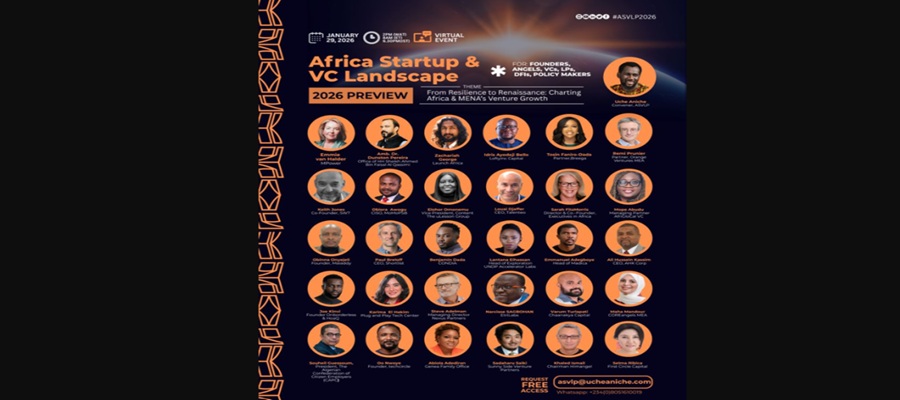Telecom
SERAP Urges NCC to Reverse Directive to Block Phone Lines

Socio-Economic Rights and Accountability Project (SERAP) has urged Dr. Aminu Maida, the Chief Executive Officer of the Nigerian Communications Commission (NCC) “to immediately revoke the apparently unlawful directive to network providers to bar the phone lines of millions of Nigerians who have linked their SIM cards to their National Identification Numbers (NINs).”

SERAP also urged him to “restore the phone lines of these Nigerians, and to urgently establish a mechanism for effective consultation to provide Nigerians who are yet to link their SIM cards to their NINs with the appropriate support and infrastructure and adequate time and opportunity to do so.”
The Commission had recently ordered telecommunications companies to bar the phone lines of millions of citizens including those who allegedly “did not submit a good NIN or didn’t get a cleared or verified NIN by February 28.”
In the letter dated 9 March 2024 and signed by SERAP deputy director Kolawole Oluwadare, the organisation said: “The directive to the network providers to bar Nigerians who have linked their SIM cards to their NINs is an appalling violation of citizens’ rights to freedom of expression, information and privacy.”
SERAP said, “No agency has the right to strip the citizens of their basic constitutional rights under the guise of failing to properly link their SIM cards with their NINs or failing to do so timeously.”
According to SERAP, “The blocking of phone lines of Nigerians must only be a last resort measure, and strictly in line with the Nigerian Constitution 1999 [as amended], international human rights and due process safeguards.”
The letter, read in part: “The arbitrary barring of people’s phone lines is never a proportionate measure as it imposes disastrous consequences and severely hinders the effective enjoyment of economic, social, and cultural rights, as well as civil and political rights.”
“Blanket measures of barring the phone lines of millions of Nigerians are inconsistent and incompatible with the Nigerian Constitution and human rights treaties to which the country is a state party.”
“We would be grateful if the recommended measures are taken within 7 days of the receipt and/or publication of this letter. If we have not heard from you by then, SERAP shall consider appropriate legal actions to compel the NCC to comply with our request in the public interest.”
“The arbitrary directive and the barring of the phone lines are extreme measures which must meet the strict legal requirements of legality, necessity and proportionality.”
“The NCC has also apparently failed to conduct an impact assessment of these extreme measures in order to avoid their arbitrary or excessive effects. These extreme measures go against the regulatory objectives of the Nigerian Communications Act and violate Nigerians’ fundamental human rights.”
“The NCC has clearly failed to abide by the Nigerian Constitution, human rights standards, democratic processes, the rule of law and due process safeguards.”
“There is no legal justification for the arbitrary barring of phone lines of millions of Nigerians, especially those who have linked their SIM cards with their NINs.”
“The directive by the NCC to telecommunications providers to bar the phone lines of Nigerians who have linked their SIM cards with their NINs amounts to unlawful, unnecessary, unjustifiable and disproportionate restrictions on the rights to freedom of expression, information and privacy.”
“The NCC has a direct responsibility to respect the rights to freedom of expression, information and privacy and to take effective measures to protect these fundamental human rights against attacks by third parties such as network providers.”
“The NCC cannot use the pretext of responding to the security crisis in the country by adopting unlawful restrictions on constitutionally and internationally guaranteed human rights.”
Telecom
ASVLP 2026: Africa, MENA VCs Gear Up as Tech Funding Hits $4.1bn Rebound

As Africa and MENA’s startup ecosystems transition from post-correction resilience into a new phase of disciplined growth, the Africa Startup & VC Landscape Preview (ASVLP 2026) will convene leading founders, investors, policymakers, and ecosystem builders on January 29, 2026, for its second annual, agenda-setting virtual forum.

Following a challenging global venture cycle, 2025 marked a notable rebound across the African ecosystem, with startups raising an estimated $3.2–$3.3 billion over the full year.
The recovery was accompanied by significant structural shifts: Kenya emerged as the leading destination among Africa’s “Big Four” markets for the first time, while Nigeria recorded a year-on-year funding decline, reflecting changing investor preferences, macroeconomic pressures, and a broader recalibration toward capital efficiency and sustainability.
Sectorally, fintech remained the most funded vertical, while climate & energy, AI-enabled solutions, healthtech, and infrastructure-adjacent businesses gained increasing attention. Across Africa and MENA, development finance institutions (DFIs) and family offices played a more pronounced role in anchoring funds, deploying catalytic capital, and supporting blended-finance structures, reshaping how early-stage and growth capital is mobilized.
ASVLP 2026 is designed to translate these data points into forward-looking strategy.
The forum will bring together venture capitalists, angel investors, LPs, DFIs, family offices, founders, corporate leaders, and regulators from Africa, MENA, Europe, and North America to assess 2025 outcomes and chart priorities for 2026.
The program will feature keynotes, fireside chats, panels, and deep-dive roundtables, including discussions on:
· The 2026 Africa & MENA FinTech Landscape, focusing on security, profitability, regulation, and growth frontiers
· Emerging Fund Managers, capital formation, and LP alignment
· Talent, operator depth, and institutional capacity as constraints to scale
· Regulatory evolution and cross-border market integration
A major highlight of ASVLP 2026 will be the Final DealRoom Pitch Session, where a curated group of high-potential startups will present to an experienced panel of investors.
• Founders can apply to pitch via: bit.ly/ASVLP-DR-Founders
• Investors seeking DealRoom access can request entry via: bit.ly/ASVLP-DR-Investors
Confirmed speakers for ASVLP 2026 include Khaled Ismail (HIMangel), Idris Ayodeji Bello (LoftyInc Capital), Zachariah George (Launch Africa), Tosin Faniro-Dada (Breega), Selma Ribica (FirstCircle Capital), Maha Mandour (COREangels MEA), Joe Kinvi (Borderless), Remi Prunier (Orange Ventures MEA), Karima El Hakim (Plug and Play Tech Center), Souheil Guessoum (President, The Confederation of Citizen Employers – Algeria (CAPC)), Remi Prunier (Partner, Orange Ventures, MEA), Maha Mandour (COREAngels MEA), Ali Hussein (President, Kenyan FinTech Association), Patrick Okebu (CIO, Interswitch Group) among other leading voices shaping capital, policy, and innovation across the region.
“The conversation has shifted,” said Uche Aniche, Convener of ASVLP. “It’s no longer about whether capital will return to Africa and MENA, but what kind of capital, deployed with what discipline, and in service of which long-term outcomes. ASVLP exists to help the ecosystem make sense of that transition.”
Participation in ASVLP 2026 is free but strictly by invitation.
Interested participants are encouraged to repost the official announcement on LinkedIn and comment #ASVLP2026 to receive a private registration link. They could also email [email protected] and request invite.
Telecom
TikTok, Instagram Blamed in US Youth Suicide Lawsuit

Major social media giants Meta Platforms, TikTok and Alphabet’s YouTube will face a landmark jury trial this week in Los Angeles County Superior Court over allegations that their addictive designs have fuelled a youth mental health crisis, marking the first such case to reach this stage.

Social Media
The pivotal personal injury lawsuit centres on a 19-year-old Californian woman identified as K.G.M., who claims her childhood immersion in Instagram, Facebook, YouTube and TikTok—engineered with endless scrolls, autoplay videos, notifications and algorithms—sparked severe anxiety, depression and suicidal thoughts.
Dozens of similar suits have surged since 2022 from families, schools and states, accusing the firms of burying internal research on teen harms while prioritising ad revenue through youth-targeted engagement hooks, despite Section 230 protections for user content.
Plaintiffs seek damages and design overhauls, arguing platforms bypassed parents and preyed on vulnerable kids; defendants counter there’s no clinical “social media addiction” diagnosis, no proven causation—kids with issues often use less—and they’ve added safeguards like parental controls and time limits.
Echoing Australia’s under-16 bans, the trial will scrutinise thousands of internal documents, expert testimonies and K.G.M.’s story, potentially expanding tech liability amid debates where studies show complex links, not direct causation, between screen time and disorders like eating issues or self-harm.
A win could mandate warning labels, age gates or algorithm tweaks, reshaping global platforms as U.S. Surgeon General advisories and global scrutiny intensify pressure on Big Tech to prioritise child safety over profits.
Telecom
Meta Tests Paid Subscriptions Across Instagram, Facebook, WhatsApp

Meta is gearing up to trial paid subscription services on Instagram, Facebook, and WhatsApp, aiming to diversify revenue streams beyond advertising while maintaining free core access for all users.

Meta
The subscriptions will offer enhanced tools tailored for everyday users, creators, and businesses, including advanced content creation, sharing, and workflow features distinct from the existing Meta Verified verification program. Unlike a uniform rollout, Meta plans varied testing formats per app to match diverse audiences, experimenting with feature bundles based on user feedback to refine the model.
A key element involves integrating Manus, the autonomous agent firm Meta acquired for $2 billion in December, into these apps alongside its enterprise sales. Manus enables complex task automation with minimal input, with early signs like Instagram shortcuts already spotted by reverse engineer Alessandro Paluzzi.
Video tools feature prominently: Meta’s Vibes short-form video generator in the Meta AI app shifts to freemium, where paid tiers unlock higher monthly creation limits beyond the free baseline. On Instagram, subscriptions could enable unlimited audience lists, non-follower tracking, and anonymous Story views, though specifics for Facebook and WhatsApp remain under wraps.
Drawing from Meta Verified’s 2023 launch—which provides badges, support, and protection mainly for creators—these broader plans target wider appeal amid industry shifts. Ad growth slows against TikTok competition, while Snapchat+ boasts 16 million subscribers at $3.99 monthly, proving demand for value-driven paid perks despite subscription fatigue risks from streaming and storage fees.
Meta will phase tests gradually, prioritizing feedback to shape long-term viability without alienating free users.

 News3 days ago
News3 days agoLIRS to Invoke NTAA to Recover Unpaid Taxes from Bank Accounts, Others

 News3 days ago
News3 days agoAnambra Cuts Monday Pay to Kill Sit-at-Home

 E-Financial3 days ago
E-Financial3 days agoNIBSS, Others Flag 13,417 Nigerian Fraudsters on Person of Interest Portal

 E-Financial3 days ago
E-Financial3 days agoFirst Asset Management Receives Upgraded Ratings from Agusto &Co and DataPro

 E-Financial3 days ago
E-Financial3 days agoCBN Prepares Fresh Debit Card Rules to Improve ATM Services

 General News3 days ago
General News3 days agoNigeria Treats Religious Violence as Attack on State – NSA Ribadu

 E-Financial2 days ago
E-Financial2 days agoCBN Upgrades Licences of Opay, Moniepoint, Kuda, Palmpay, Paga to National Status
- E-Financial2 days ago
Nigeria’s 9 Top FinTech Firms Valued at $10.6Bn in January 2026

























